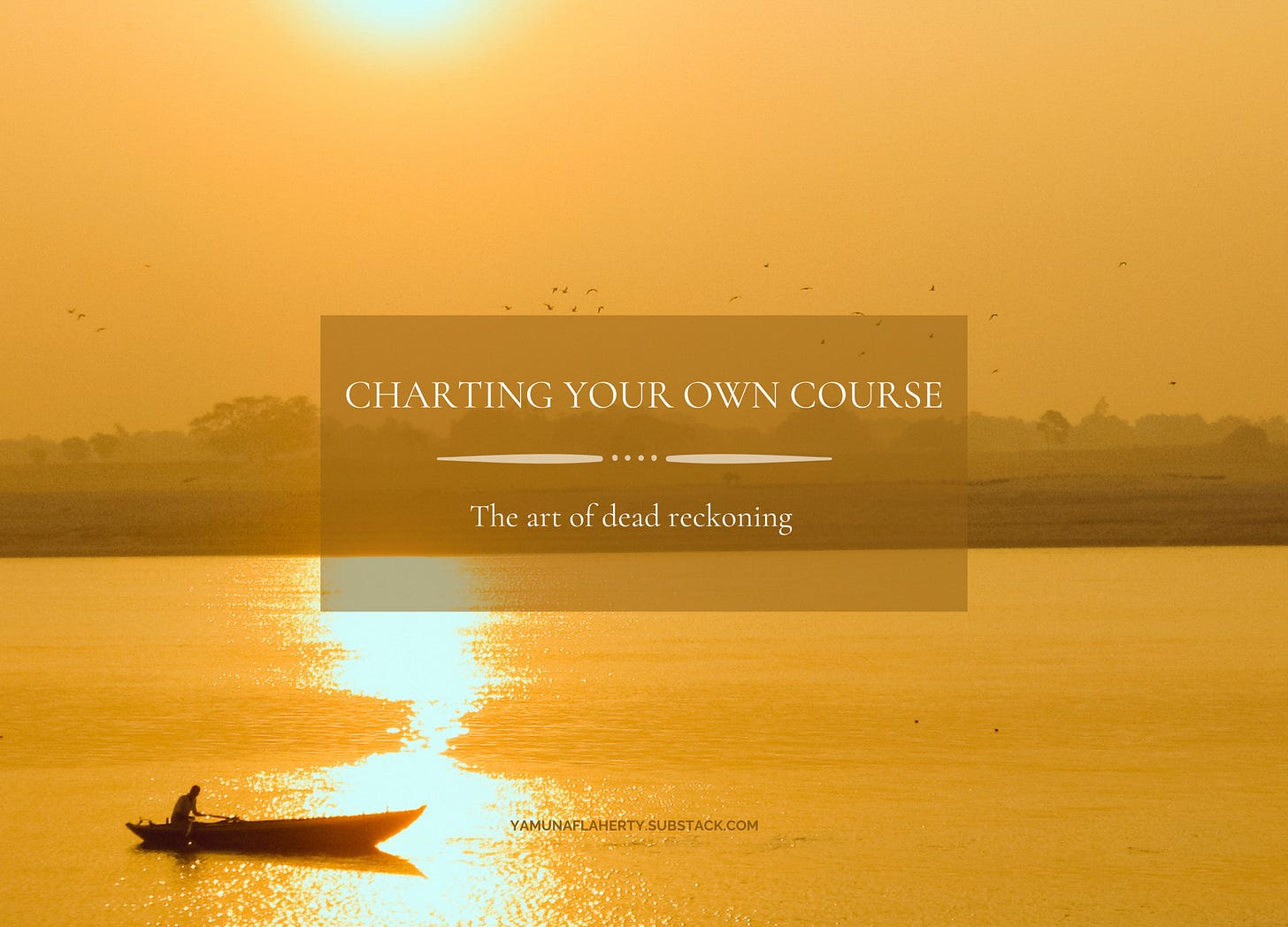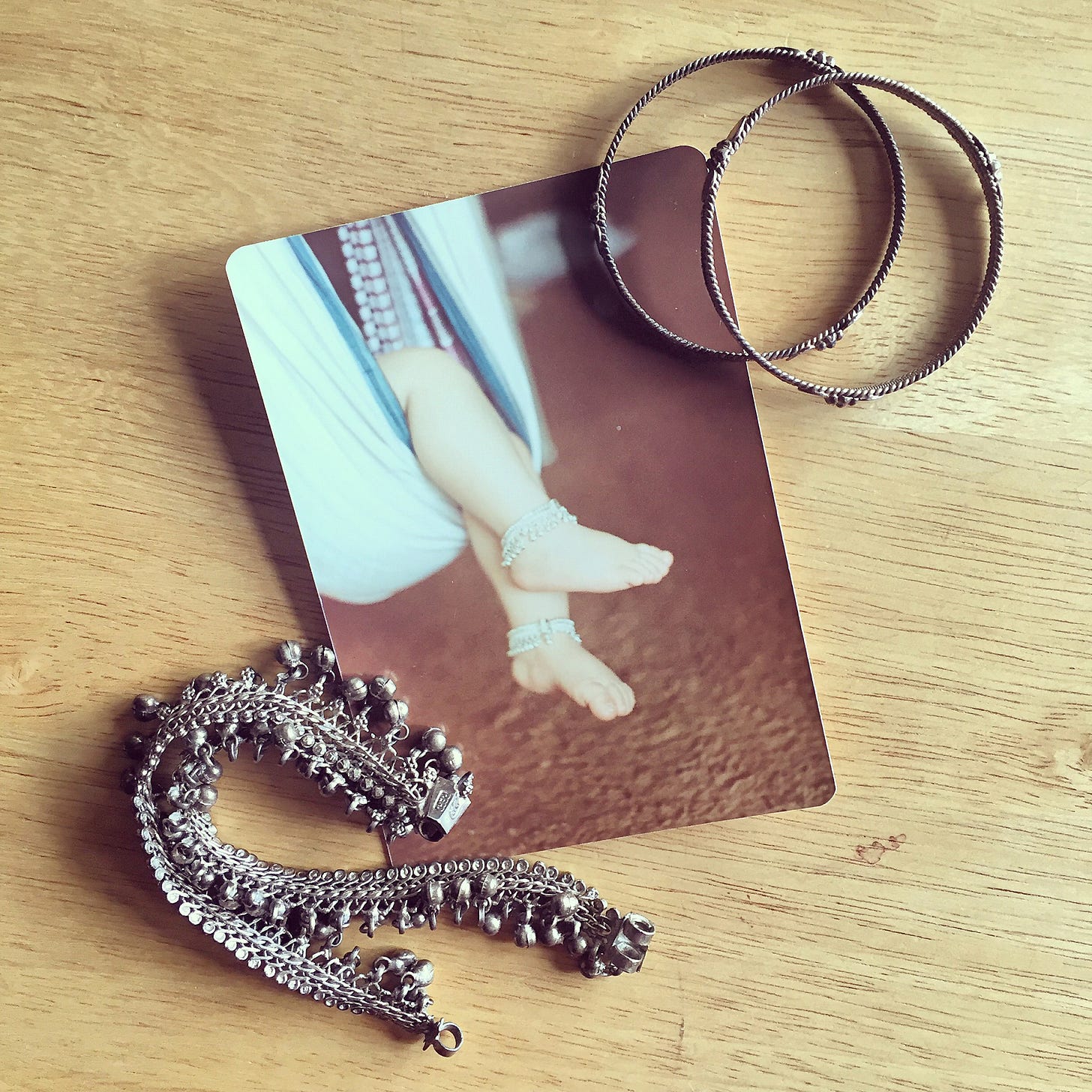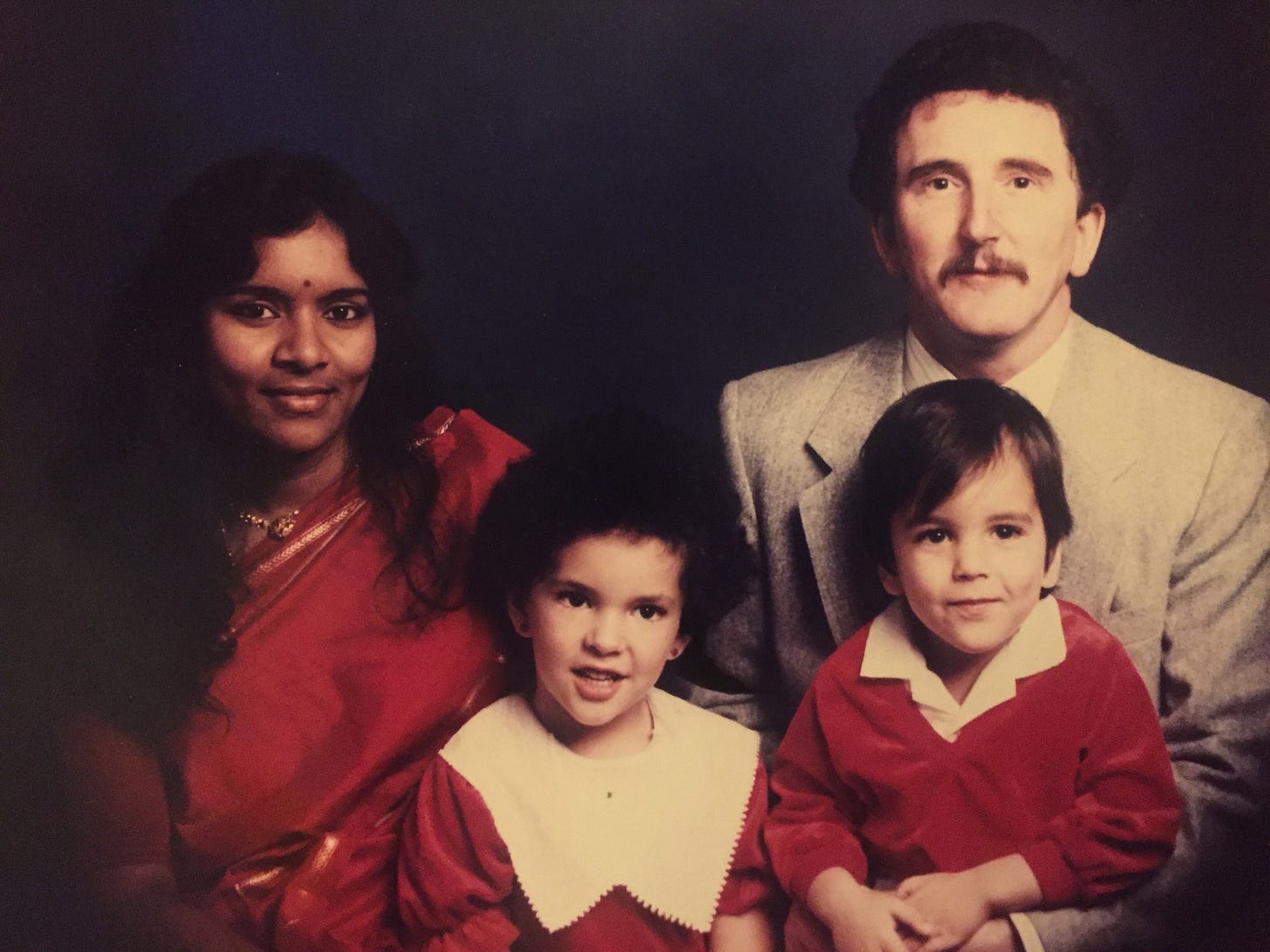The Art of Dead Reckoning
"Dead Reckoning" is an old maritime term used in wayfinding. It is the process of locating oneself using a previously determined position. Wade Davis, who I refer to in my first essay on Substack, describes dead reckoning as:
"You only know where you are by remembering where you've come from."
I see an incredible metaphor here that describes what I know to be true: we cannot truly understand who we are if we don’t know who we come from.
Tracing Ancestral Lines
I have always been that one in the family who traced the threads of my family back through history to understand myself. I collect and safeguard family photos, preserve cherished objects like the silver bells I wore on my ankles when I was a baby, draw our family tree, go on ancestral pilgrimages to my origin places to decode more of my inheritance, and write stories about the cultural identities that have shaped my existence. Maybe you do, too. Perhaps that's why you are here. Deep in your bones, you know that finally arriving home is about loving yourself and honouring who you are and all that made you that way.
As a third-culture kid born in Canada to an Irish-Scotch father and a Tamilian mother, I have been trying to carve new pathways in the world while holding some ancient roots. These lineages, like yours, have endowed me with an equal measure of blessings and burdens, lessons and visions. I have spent my life thus far walking a thousand roads only to discover that no matter where I go or where I've been, I have always been on the one long road home, the road to self-acceptance, self-love, and self-knowledge.
Like all journeys, there is always a two-headed dragon to slay to get to what matters. Mine has been shame. Shame in myself has discouraged me from sharing my love stories, hindered my authenticity in life, and led me to seek alternatives to writing for the sake of social acceptance. There was a time I wished I could do anything but write the things I didn’t want to, but I knew in my heart awakening my voice would disrupt that narrative I had been clinging to for safety, pushing me to overcome this barrier to my authentic self-expression.
I now recognize a divine intelligence in how shame pushed me to do the true work of confronting my fears, repairing relationships, and becoming self aware. It has forced me to face myself head-on and discern what belongs to me and what I choose to carry. This is an integral part of each of our journeys here, to discover, digest and transform the past to become our freest, most authentic, most essential selves.
Here is an excerpt from one of my travel diaries while I was in India,
"I sense that everything that I'm fighting comes from this place. I feel just as I did when I was a kid, ashamed, impotent, unable to be me. Something is alive in me and feels powerful, like a life force that has awakened me to be the architect of my own reality. In India, my power is often squashed by the thousand voices, the hundred hands, and the taboos. So many fucking taboos. Being real is a taboo. I no longer want to fear my passionate nature and lustful longings; I want to live it to its heights. Yet, something draws me back here again and again, to this dragon at the threshold of my triumph. I have tried every weapon to defeat it but the sword of love, acceptance, and non-judgement. Maybe that is why I'm here again. I'll finally win this battle when I just accept myself as I am."
We each carry our stories written in the folds of our family one, in the whispers of our ancestors failures and successes, and in the ways we choose to do things differently. To truly unearth that story—to bring it into the light and give it form—is an act of courage, patience, and deep listening. It is a journey that requires us to look beyond the surface of our mundane lives and dig into the rich soil of our past, touching the roots that connect us to something greater than ourselves.
The Power of Owning Your Story
There is immense power in owning our narrative. When we claim our stories—flaws, complexities, and all—we reclaim our voice. We step out of the shadows of silence and into the light of self-awareness. Telling our truth is an act of resistance, self-affirmation, and ensuring our existence is seen and remembered.
As we understand our stories, we transform them. What was once buried becomes visible, and what was once fragmented becomes whole. In doing so, we honour ourselves, the generations that came before us, and those who will come after.
Let’s look at some of the ways we can reclaim our narratives—on our terms, in our voice.





